Many pet owners wonder, "Can cats eat avocado?" and “Is avocado toxic to cats?” It's a good question because avocados are tasty and nutritious, but are they safe for our feline friends?
Before you allow your cats to take a taste, it's essential to grasp the potential risks and signs of avocado toxicity in cats when they eat this fruit. Let’s find out!
Is Avocado Safe For Cats? Real-Life Stories
reddit iframe loading
A Reddit user by the name of u/ZymosisTheAlien posted the following question on the r/pet subreddit:
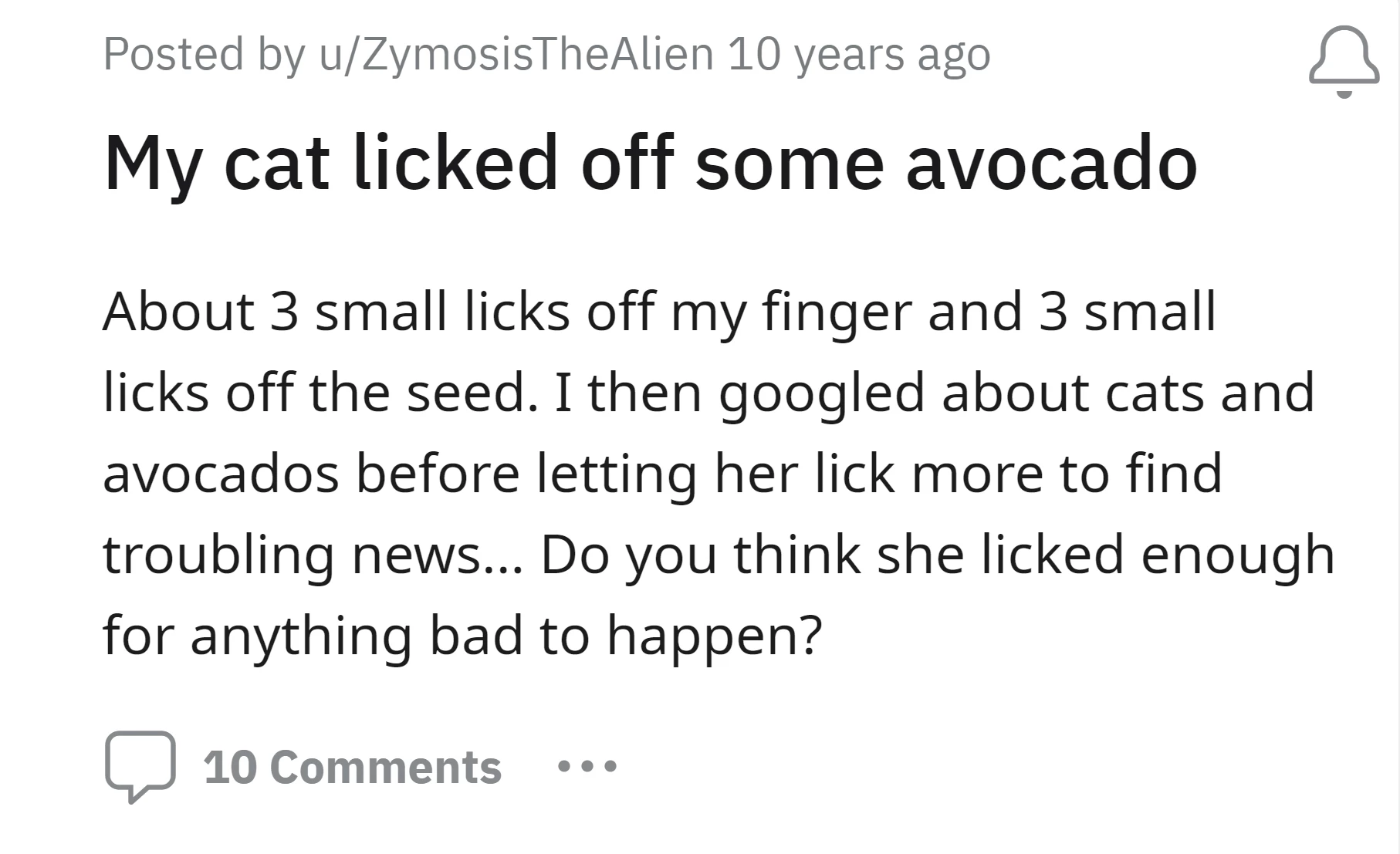 Source: ZymosisTheAlien
Source: ZymosisTheAlien
The concerns raised by u/ZymosisTheAlien are both valid and relatable. Many pet owners have found themselves in similar situations, sharing a moment of curiosity between their feline friends and the fruits or snacks we enjoy.
Redditor r/tinyplastictrees suggested not worrying too much if a cat consumes a small amount of avocado.
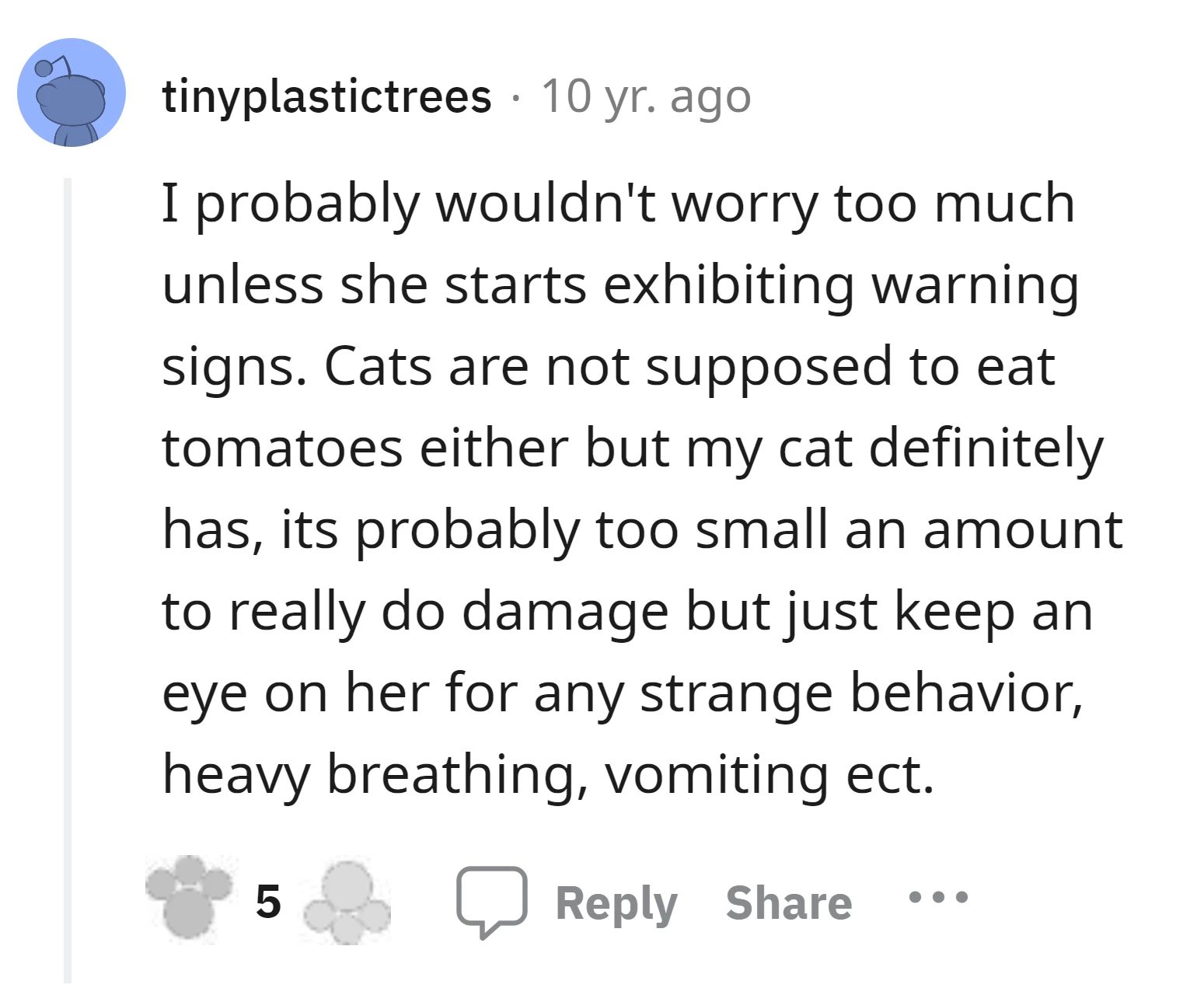 Source: tinyplastictrees
Source: tinyplastictrees
Redditor r/Jeepersca shared a story of their cat Boo stealing guacamole, but the cat was okay afterwards.
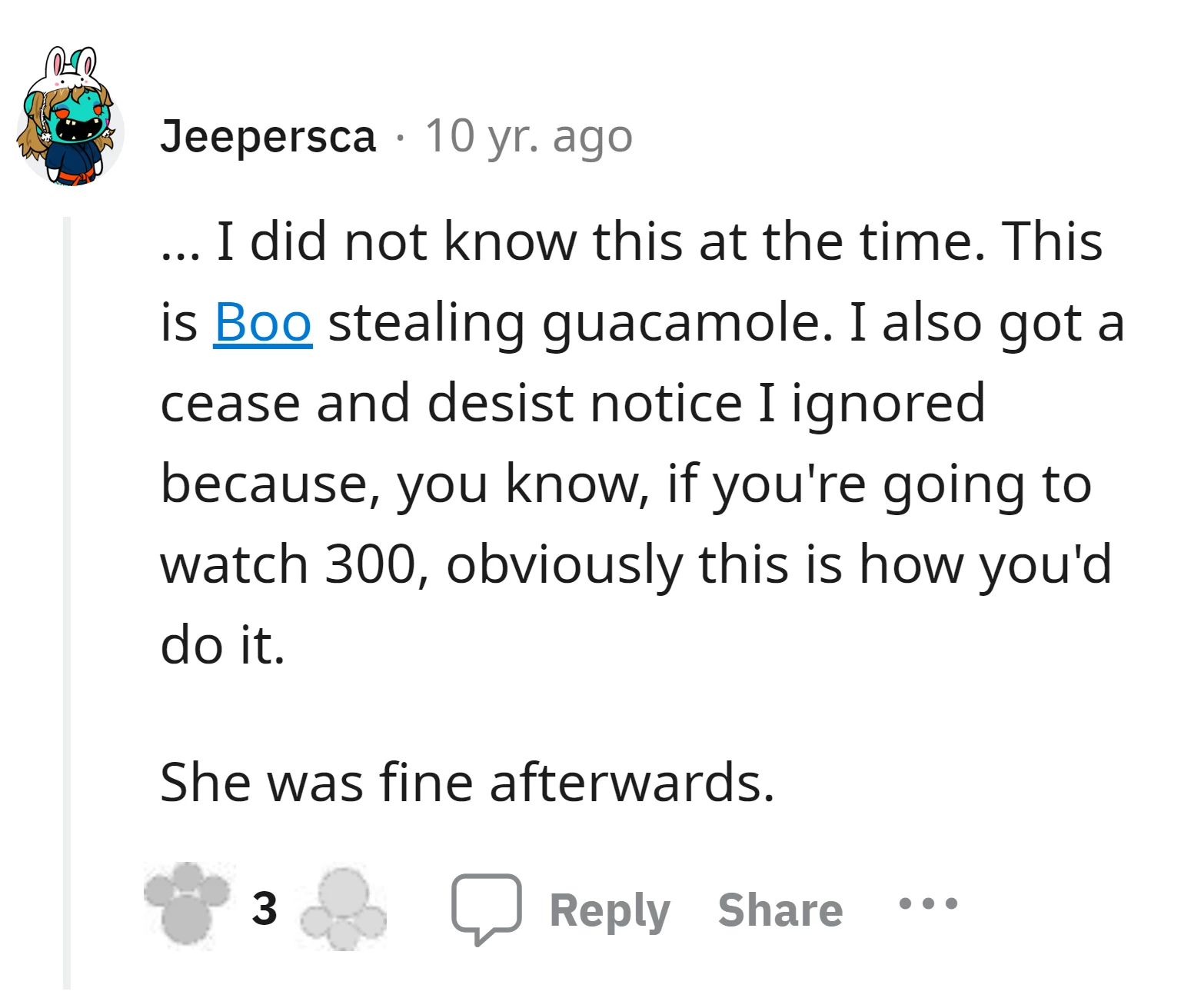
Source: Jeepersca
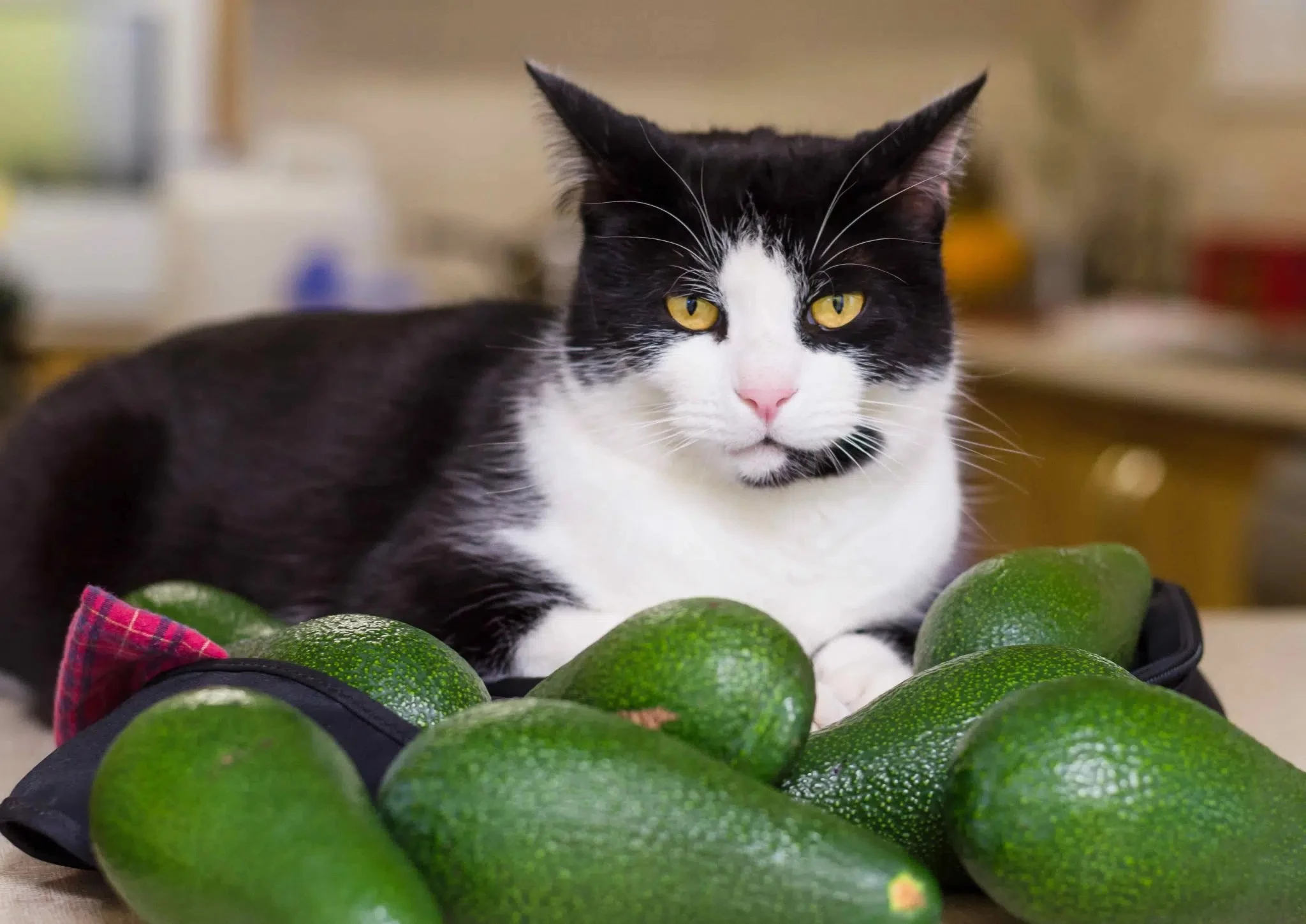 Source: Google Images
Source: Google Images
Redditor r/lemon_melon shared that their cats have eaten a lot of avocado flesh. But thankfully, they haven't had any problems.
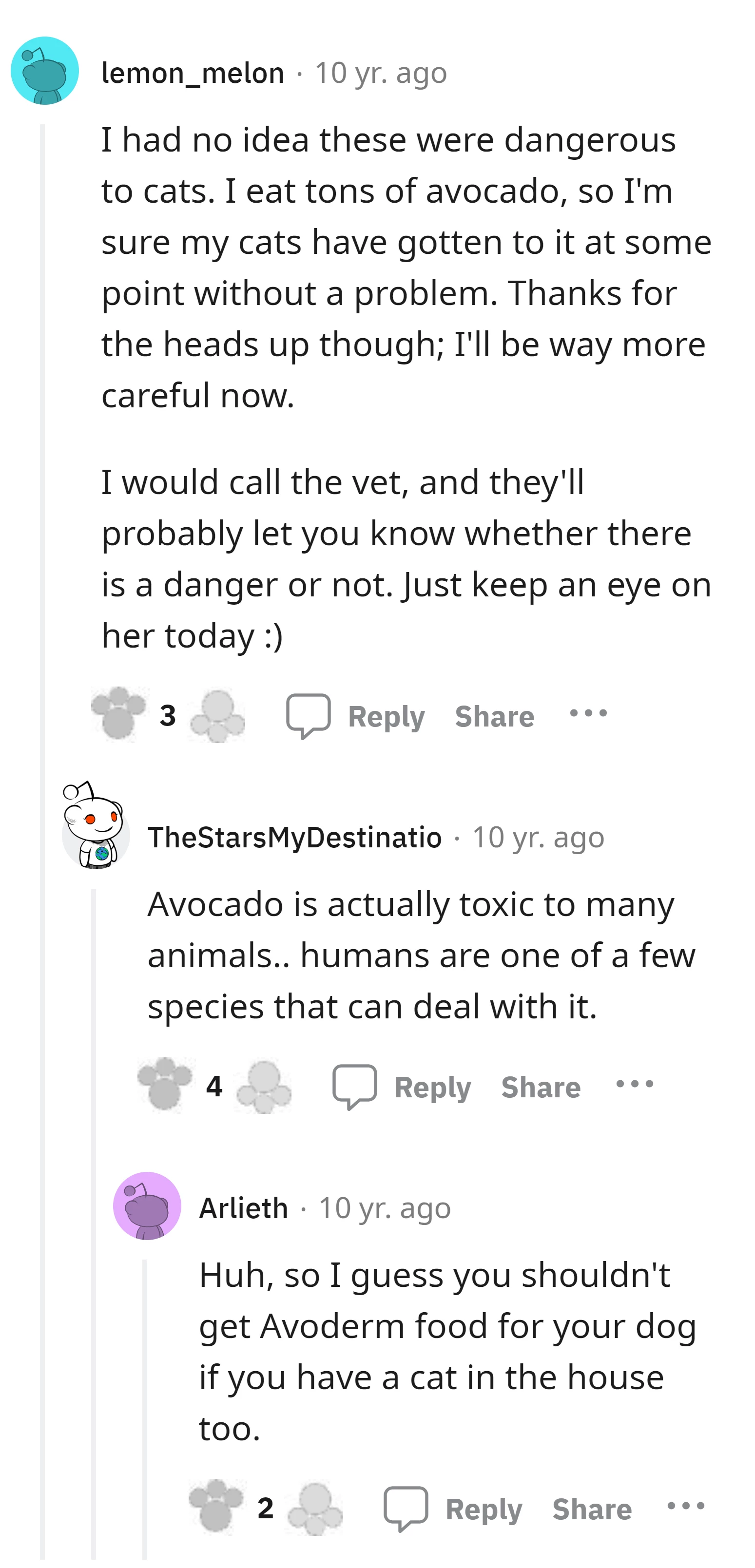 Source: lemom_lemon
Source: lemom_lemon
According to a vet the Reddit user r/theonlycrazyonehere used to work with, most dogs and cats can handle small amounts of avocado without a problem, although some might get a tummy ache. But it's different for birds; even a little avocado can make them suffer severe avocado toxicity.
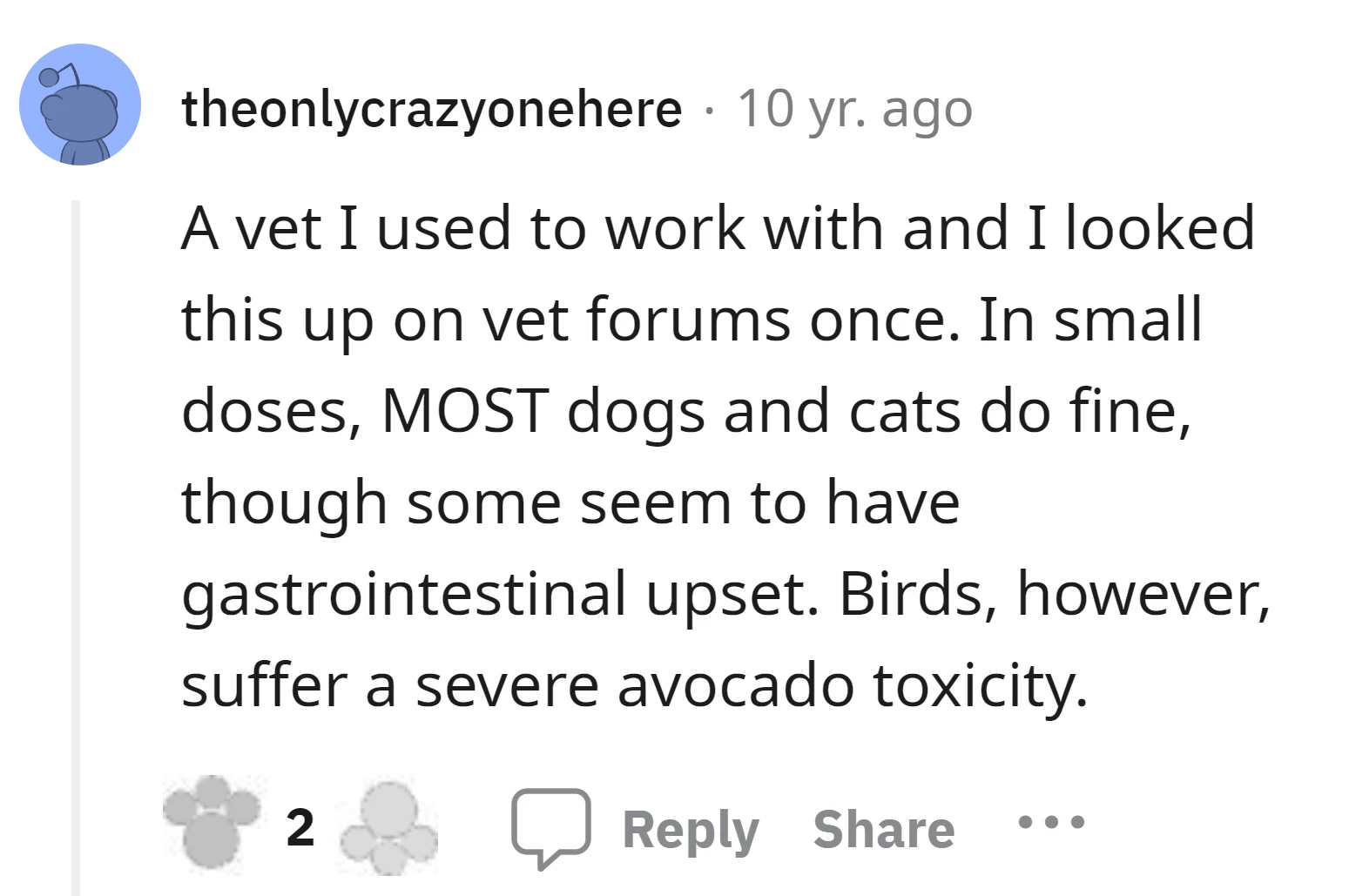 Source: theonlycrazyonehere
Source: theonlycrazyonehere
So, is avocado poisonous to cats?
Can Cats Eat Avocado?
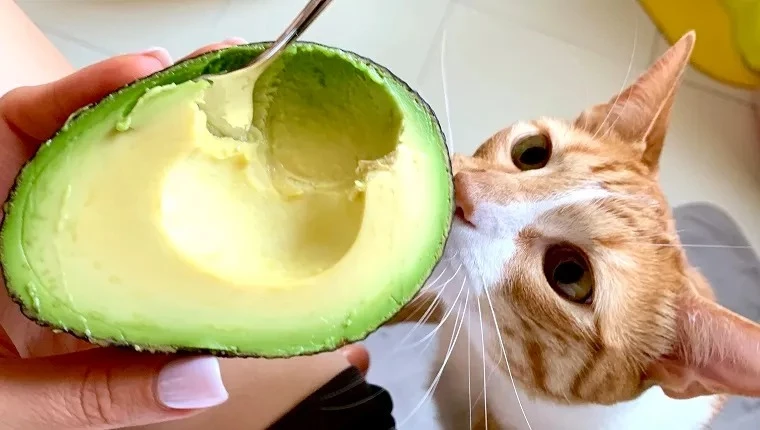 Source: Google Images
Source: Google Images
The short answer is that cats can eat a minimal amount of ripe avocado flesh without apparent harm.
But if your cat has a history of stomach issues like gastritis or pancreatitis, it's better not to give them avocado. Dr. Rebello, an expert, says, "Avocados have a lot of fat, and that might upset a cat's tummy or make things worse for cats with these tummy troubles."
Also, avocado is not recommended for kittens due to their underdeveloped immune systems and sensitive stomachs.
Which Parts Of An Avocado Should Cats Avoid?
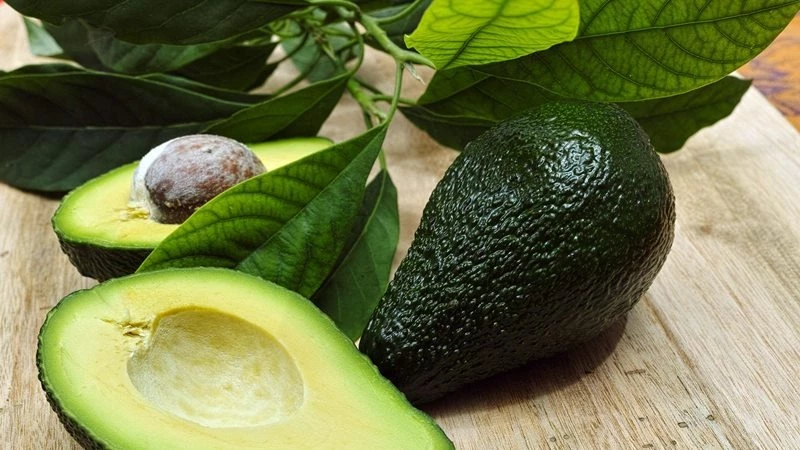 Source: Google Images
Source: Google Images
Cats should avoid eating a substantial quantity or specific parts of the avocado plant, like the leaves, skin, and big seed. But why?
Avocado contains a substance called "persin," primarily concentrated in these parts. This substance can be a little bit harmful to cats and dogs. Not only cats and dogs, but avocados are also actually very bad for some animals like birds, rabbits, horses, and goats because of this "persin" stuff.
Additionally, the big seed inside can pose a choking risk for your cat. So, keep an eye on your cat if they want to try some avocado.
Can cats eat avocado oil? Yes, cats can safely eat avocado oil, but just a small amount because it may contain traces of “persin” from the fruit.
Signs Of Persin Toxicity in Cats
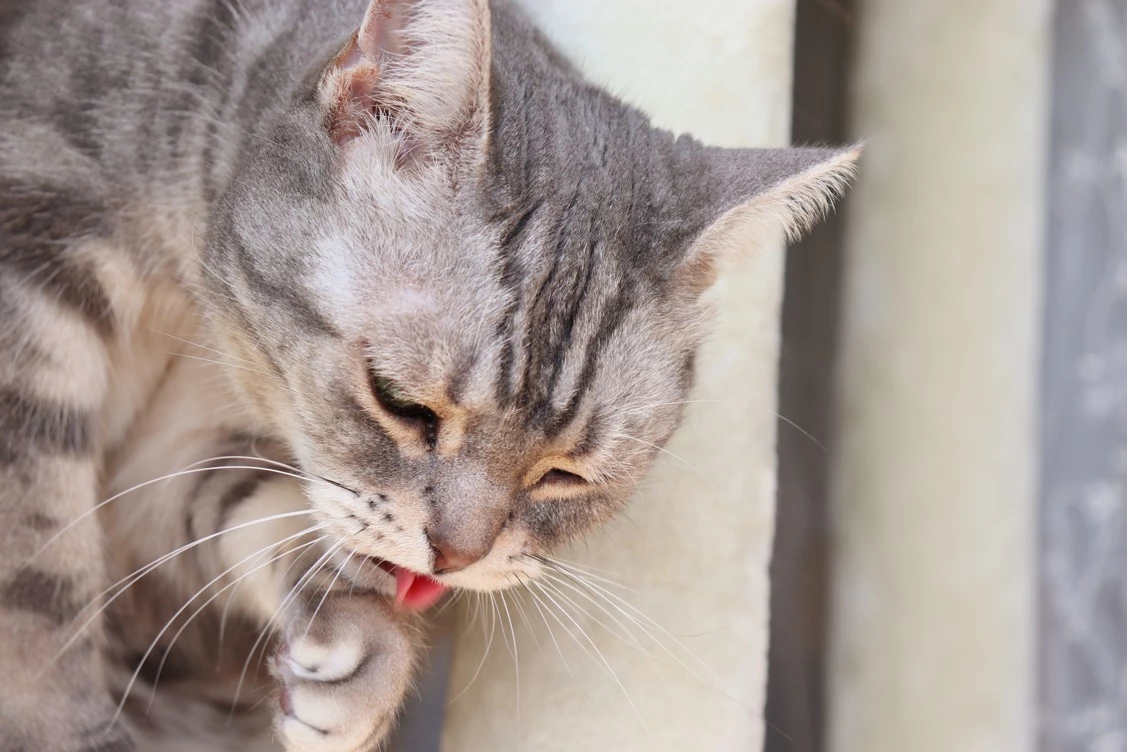 Source: Google Images
Source: Google Images
It's relatively rare for cats to consume enough avocado to trigger persin toxicity.
However, it's crucial to be aware of the signs of “persin” toxicity in cats. Symptoms can include:
- Gastrointestinal Distress: Vomiting and diarrhea are common initial signs when a cat has ingested a toxic amount of persin.
- Breathing Difficulties: In severe cases, cats may exhibit labored breathing and respiratory distress.
- Fluid Accumulation: Persin toxicity can lead to fluid accumulation in the chest or abdomen.
- Lethargy: Cats may become unusually tired and unresponsive.
What To Do If Your Cat Eats Avocado?
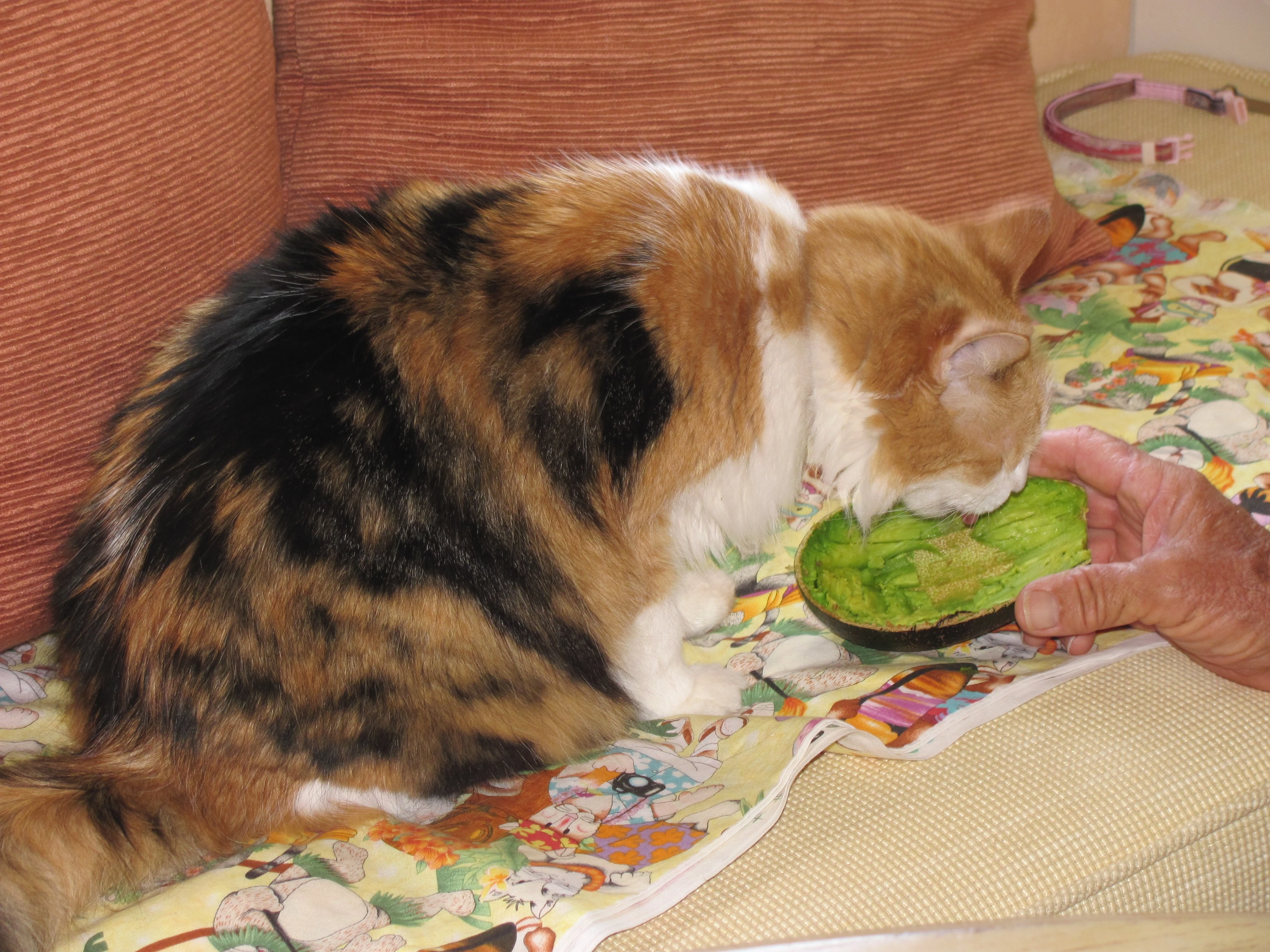 Source: Google Images
Source: Google Images
Seek Immediate Veterinary Care:
If you suspect that your cat has ingested a large amount of avocado or is showing any signs of persin toxicity, contact your veterinarian without delay.
Share Details:
Inform your vet about the quantity of avocado ingested, the parts consumed, and the duration of time since ingestion. This information can help guide the treatment.
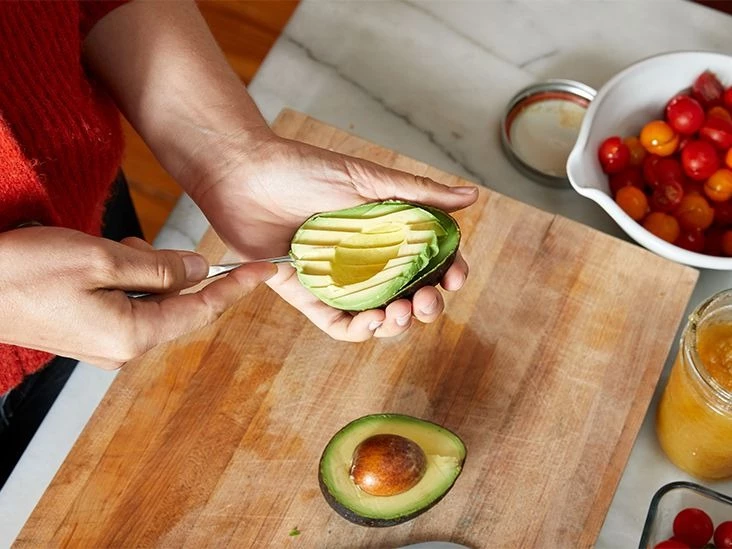 Source: Google Images
Source: Google Images
Monitor And Comfort:
While waiting for professional help, keep a close eye on your cat and provide a calm and comfortable environment. Try to minimize stress, as it can exacerbate symptoms.
Prevention:
The old adage "prevention is better than cure" holds true. It's best to avoid feeding your cat avocado altogether to sidestep potential complications.
Which Fruits Are Safe For Cats?
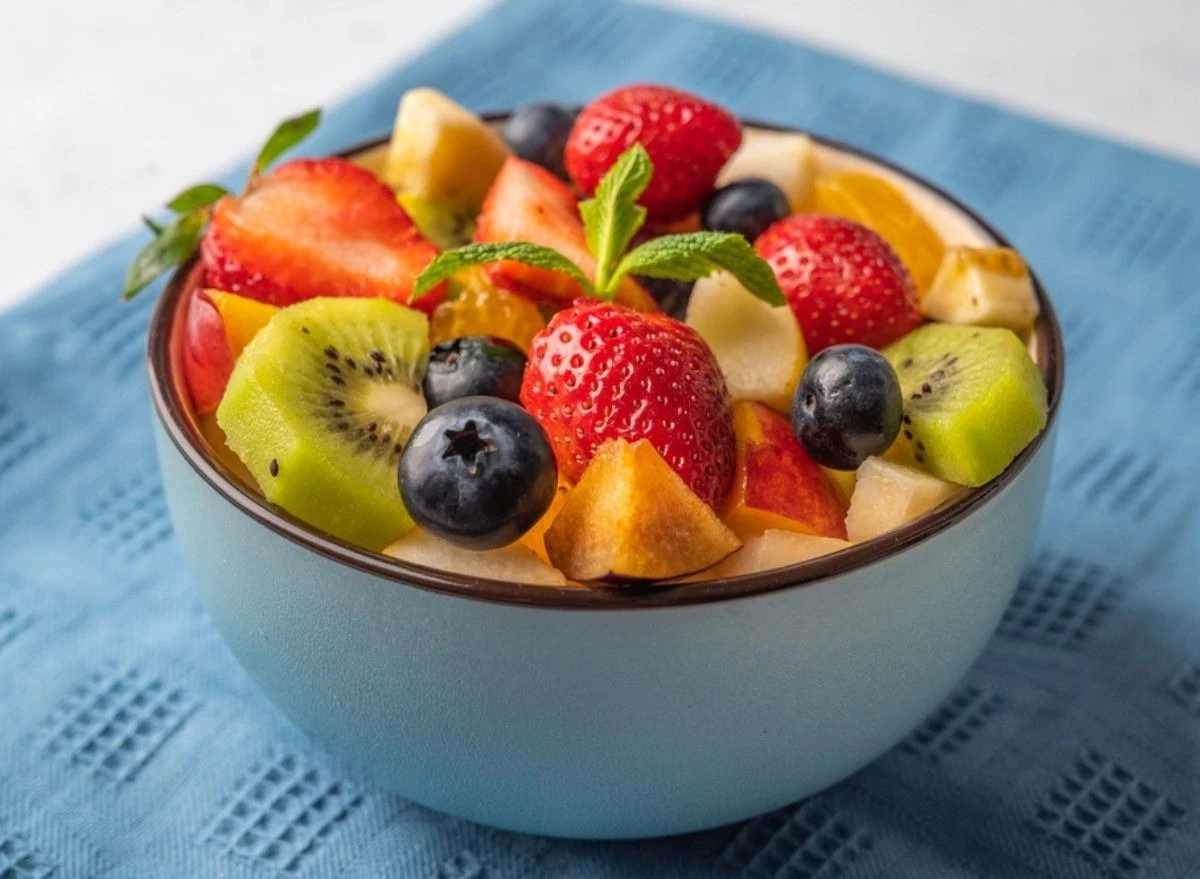 Source: Google Images
Source: Google Images
Cats are obligate carnivores, which means that their primary dietary requirement is meat. However, some fruits can be safely offered to cats occasionally.
Here are a few fruits that are generally considered safe for cats:
- Blueberries
- Cantaloupe
- Watermelon
- Bananas
- Pumpkin
- Strawberries
Conclusion: Can Cats Have Avocado?
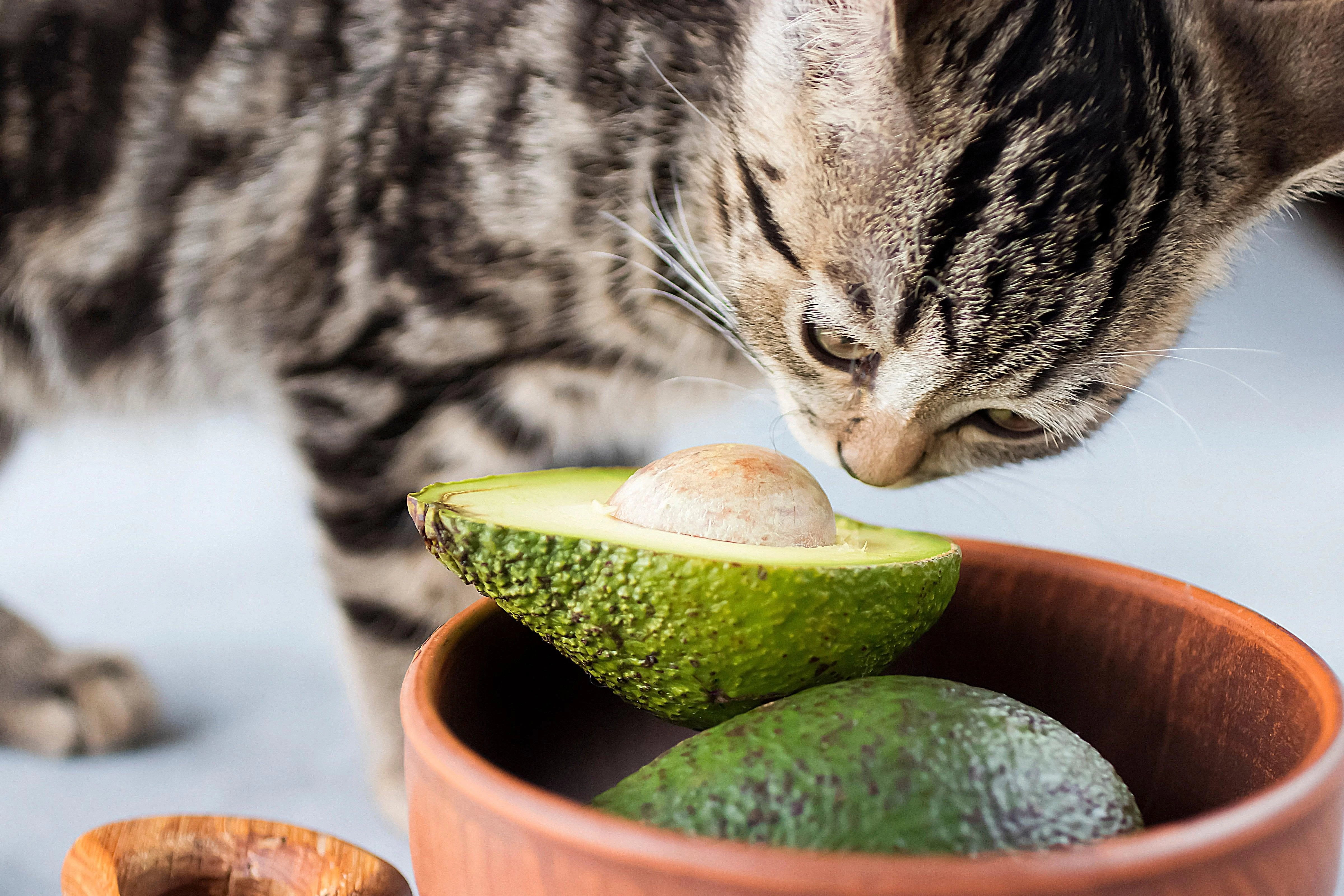 Source: Google Images
Source: Google Images